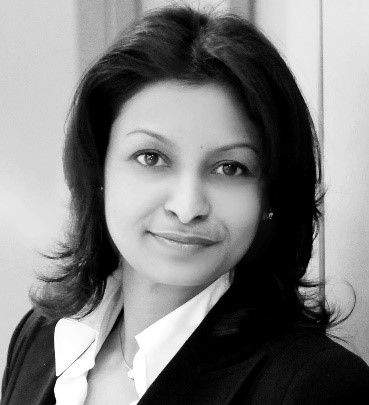Merkel’s departure and the rise of the Far Right
#CriticalThinking
Professor of Economics and Finance at the International School of Management, Hamburg
As Angela Merkel’s politically tumultuous yet economically stable chancellorship nears its end, Germany grapples with the rise of the Far Right and a slowdown in export-based prosperity. Merkel’s party, the conservative Christian Democratic Union (CDU) is now inching further to the right, while its sister-wing Christian Social Union (CSU) openly entertains views that pitch Germans against non-Germans. Even Christian Lindner, head of the liberal democrat FDP, has engaged in the normalisation of xenophobic rhetoric to harvest votes. So far, only the Far Right party Alternative for Germany (AfD), which systematically imitates other populist parties in Europe, has made electoral gains, allowing it to become Germany’s third-largest group in the Bundestag.
While emotions run high in the Land der Dichter und Denker (land of poets and thinkers), the economy has hit a new low. Under Merkel’s coalition government, Germany consistently clocked a growth rate of 2% and above since 2014. This fell to 1.5% in 2018 and is expected to further decline to 0.5% by the end of 2019. Consumption and construction have been the primary drivers of growth in the third quarter as exports have slowed down following uncertainty caused by Brexit delays as well Trump’s chaotic trade and defence policies. Despite the sluggish growth, Germany’s surplus was €17bn, unemployment was low at 3.1% and the share market displayed bullish trends with the DAX rising above 13,000 points this year.
Today political and social discussions revolve around the all-encompassing term of Ausländer, or foreigners
One might presume that Merkel’s Midas touch of economic prosperity and the absence of bribery or corruption charges during her extraordinarily long political stint would win her bigger vote-banks in a modern democracy. Alas, the refugee crisis has fuelled nativist sentiments among the young and the old, as well as the rich and the poor. Towards the end of 2015, the political scapegoat for all German woes were the Flüchtlinge, namely the asylum-seekers. Over time, political jamboree and media reporting transformed the debate to centre around migration. Today political and social discussions revolve around the all-encompassing term of Ausländer, or foreigners. Casual discriminatory associations of problem-blaming on foreigners or systematic racist derogation by politicians attributing political correctness, points to the acceptance of white nationalist, ethnic-cleansing and xenophobic tendencies that have been part of Germany’s past.
The inaction of government agencies to sanction discriminatory behaviour confirms that the pattern of disparaging remarks directed at refugees, migrants and foreigners has gained much societal acceptability. The shooting of pro-migrant Christian Democrat Walter Lübcke by a German with a neo-Nazi past in June 2019 hardly went noticed. The firing of Hans-Jörg Maasen, head of Germany’s highest office of domestic intelligence tasked with monitoring political extremism, for being a right-wing sympathiser shocked very few. In the state of Hessen, 38 police staff were suspected of sharing racist propaganda material and threatening a Turkish lawyer in a neo-Nazi murder case, following which six of them were suspended in June. This string of events points to the calibration of an emergent social fabric in Germany that reduces neo-Nazi terrorism to a lesser and necessary evil.
The Green party Bündnis 90/die Grünen has been the most vociferous force in condemning Far Right activism, while providing progressive policy proposals that gained them substantial electoral victories and positioned them as a key counterforce to AfD. While AfD, a random grouping of professors, teachers and former aristocrats, has capitalised on the masses’ more extreme views and nurtured distrust in institutions, the Greens have acquired much respect and support through qualitative, rational and realistic argumentation, which is representative of Brand Germany as the world knows it – mostly due to Merkel’s leadership.
Few have addressed the elephant in the room. Where does Germany want to go post-Merkel?
As Merkel’s departure draws closer, German economic, political and social problems have become increasingly evident. The economic slowdown triggered by the uncertainty created by Brexit delays, American trade policy and China’s slack in demand is driving large and small German producers to export jobs and direct investment to foreign destinations. Given that every fifth German is 65 years or older, and depends on pension financing from the dwindling labour force of 45mn, a fall in job creation could dramatically affect this tender balance of household financing.
As politicians, businesses and media debate myriad operative problems, such as scrapping the solidarity tax payment, introducing wealth inheritance tax models, and reforming the pension system, among others, few have addressed the elephant in the room. Where does Germany want to go post-Merkel? What is its strategy for the future? How will the country position itself as an EU leader? To answer these, Germany has to rethink its value systems and recall that, in the words of Austrian musician Gerhard Bronner, intelligence, decency and Nazism do not mix.
Stay informed
